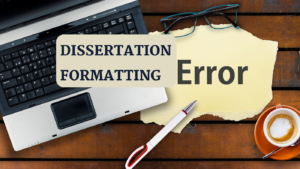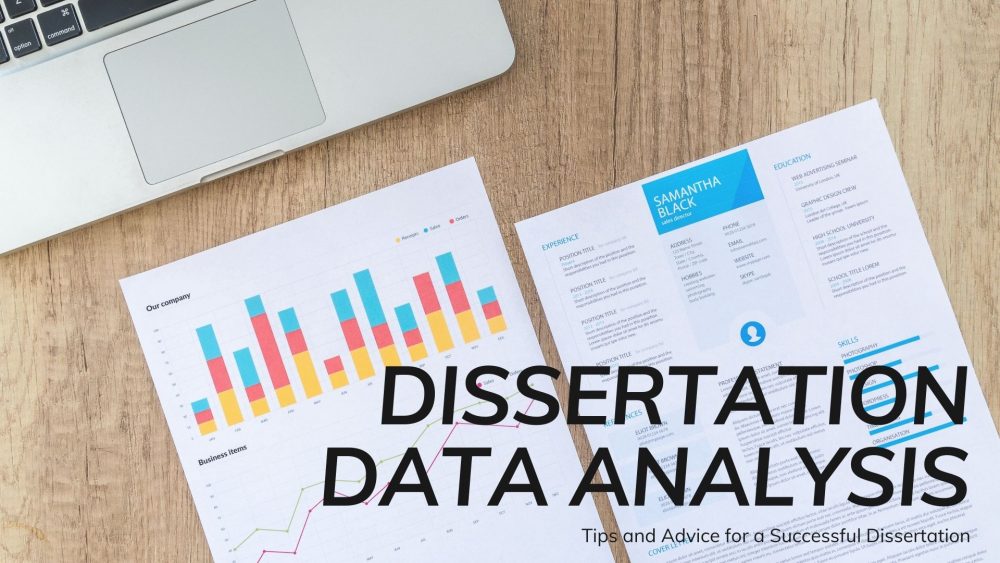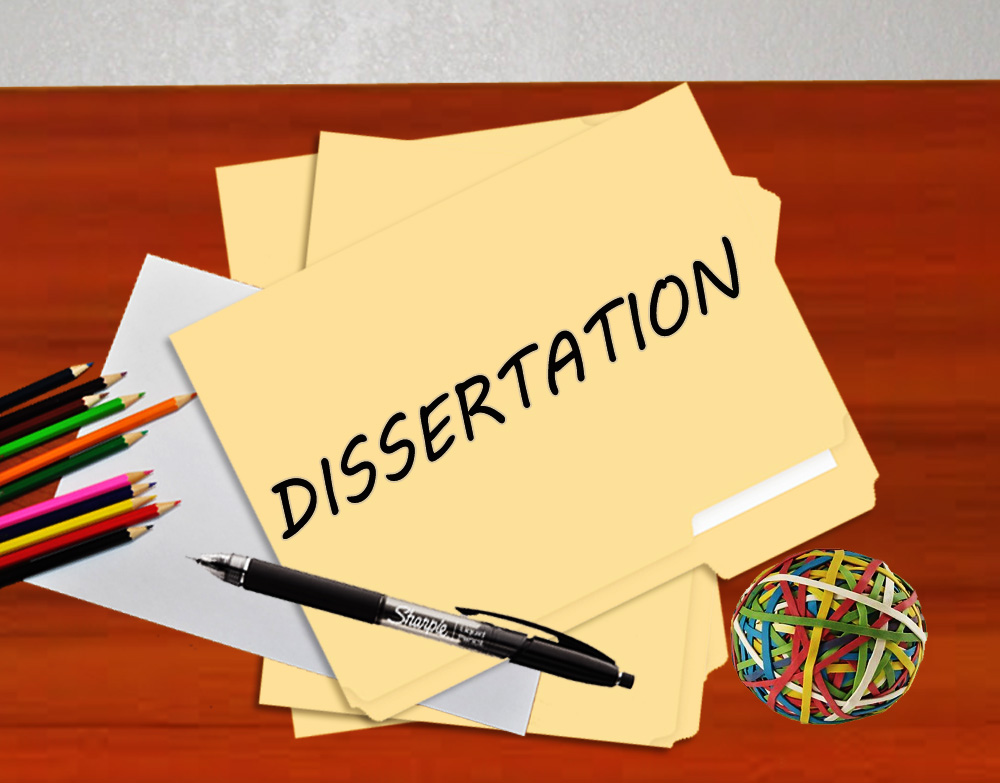Avoiding Common Errors In Your Dissertation
 Your thesis, whether for a PhD or a graduate degree, serves as the cornerstone of your academic journey. It is essential to steer clear of frequent mistakes, including omitted information, unfinished introductory sections, and leftover content from the proposal phase, to facilitate a seamless experience. Preventing frequent mistakes in your thesis, although these oversights may appear minor, they can have a substantial effect on your final evaluation. It is necessary to read through your dissertation document before handing it to your tutor to ensure it is well-written. Ask your supervisor for the university’s dissertation writing and formatting guidelines to know the mistakes to avoid when developing your paper. In addition to this, you can also research the internet to see how previous students in your department formatted their dissertation documents.
Your thesis, whether for a PhD or a graduate degree, serves as the cornerstone of your academic journey. It is essential to steer clear of frequent mistakes, including omitted information, unfinished introductory sections, and leftover content from the proposal phase, to facilitate a seamless experience. Preventing frequent mistakes in your thesis, although these oversights may appear minor, they can have a substantial effect on your final evaluation. It is necessary to read through your dissertation document before handing it to your tutor to ensure it is well-written. Ask your supervisor for the university’s dissertation writing and formatting guidelines to know the mistakes to avoid when developing your paper. In addition to this, you can also research the internet to see how previous students in your department formatted their dissertation documents.
What Is A Dissertation?
The majority of doctorate, graduate, or master’s degrees end with writing a dissertation. A dissertation is referred to as a thesis in some countries, and it is the final assignment of Ph.D. students. In contrast, it is a research project completed by undergraduate and postgraduate students in their last year in other countries. Typically, it allows learners to conduct research and present results in response to the proposed research question. The research project aims to test the research skills and knowledge the student has acquired throughout their course. It is also an assessment for determining the student’s final grade to know if they will earn a degree or not. Even though your supervisor will guide you along the way, a dissertation project is primarily independent. Most students find writing a dissertation to be the most exhausting and challenging task. During this period, they have to spend long hours of research and months of preparation. Despite the hardships, it can be rewarding, especially if you are interested in the chosen topic. Therefore, selecting a topic that genuinely interests you to be motivated to do the project is necessary.
Skills To Demonstrate When Writing A Dissertation
Your study course will determine the type of dissertation you will complete. We have empirical and non-empirical dissertations, and they have several differences. Empirical dissertations involve data collection, for instance, in a psychology course. The researcher will have to adhere to ethical and professional guidelines when collecting data from the public. Mostly, these types of dissertations may be centered on laboratory experiments. On the other hand, non-empirical dissertations are based on other people’s data and arguments, meaning you will have to read a lot. The dissertation needs you to describe what other researchers did, critically analyze their work, and explore its applications. No matter the type of dissertation you are writing and the preferred subject, you need to demonstrate the skills outlined below:
- Ability to define and outline the research area with a straightforward, concise question
- Identifying the main issues in the topic
- Sourcing valuable information
- Assessing the information’s reliability and legitimacy
- Evaluating all the presented evidence
- Drawing well-argued conclusion
- Good organizational and presentation skills of your work’s outcome.
Common Dissertation Mistakes
- Having an abstract that is longer than a page: You will have done lots of exciting research for your project and found unique content that you would love to tell your audience. All this information and the excitement can make it hard for you to summarize the abstract on a single page.
- The dissertation has several formatting problems: Your dissertation’s formatting is very important, just like the paper’s content. When writing the document, you should be familiar with the formatting requirements of a dissertation. It is possible to make some mistakes, mainly if the dissertation is lengthy.
- Your dissertation contains academic integrity violations: This mistake may seem obvious to doctoral students, but academic oversights often happen even if you did not plan for them. This is true for plagiarism, which is not the only word-for-word replication of somebody else’s work but copying ideas too.
- The presence of grammatical errors, unclear paragraph organization, and other writing blunders: All of us are not professional academic writers; that is why your dissertation may have grammatical errors and other writing errors
- Your dissertation preliminary pages may be out of order, missing, or incomplete: Preliminary pages are all the pages before the start of the dissertation’s main text. They include acknowledgments, a list of tables, a list of figures, a table of contents, and copyright pages. These pages set your paper’s tone, and your reviews will see them first.
Structure Of A Good Dissertation
- Title page: This is the first part of a dissertation, and it contains the research title and the institution’s name. The title page can be arranged differently depending on the discipline.
- Introduction to the topic of interest: The introduction section broadens the contents of an abstract. It gives the subject’s background information and explains how what and why questions of your research.
- A literature review: It will help if you read previous research on the topic to write an engaging literature review. Find relevant research information from reading journals, research articles, and books. Analyzing the sources and making connections from the collected data will help identify gaps in the existing literature.
- Methodology: The section explains how the study will be conducted, the methods to be used in collecting data, and the justifications and limitations of the selected methods.
- An overview of your findings: These are the results of the research and can be presented using tables and charts.
- A discussion of the results and implications: Here, the results are explained and recommendations are given for future studies.
- A conclusion: The conclusion chapter highlights the findings, the research questions answered, and the contribution of the research to the current literature.
- References: The reference contains a list of the sources used in the research.
Avoiding Common Errors In Your Dissertation
- It is crucial to ensure your preliminary pages are correctly formatted and they are in the correct order. Make sure you refer to the dissertation of your program to know the specific guidelines instead of guessing how the pages should appear.
- Be sure to summarize your abstract to a single page to ensure it conforms to your university’s dissertation guidelines.
- To avoid numerous formatting problems, you should look at your course’s dissertation template to ensure your paper is correctly formatted, has the required citation style, indents, page numbering, and margins.
- One of the issues that are easy to fix is your dissertation containing words from the proposal stage. To correct this, you should use the “find” feature of your word processing to search for words like a proposal or proposed and change them to words that indicate completed research.
- To avoid plagiarized ideas or words, you should carefully review your school’s guidelines on academic integrity and ensure you stick to them. Failure to follow the regulations may have serious consequences and put your degree in jeopardy.
- Colleges provide learners with online or on-campus writing centers to enable them to get writing guidance. The centers are filled with writing experts who are willing to review students’ writing. They will point out mistakes, help fix them and prevent you from repeating the errors.
Contact us to make sure your work is correctly formatted, and you will save a lot of time. Our team will bring your paper to perfection. Place an order and you will receive an excellently formatted paper according to the highest academic standards.
Get a 15% Discount on Your First Order!

